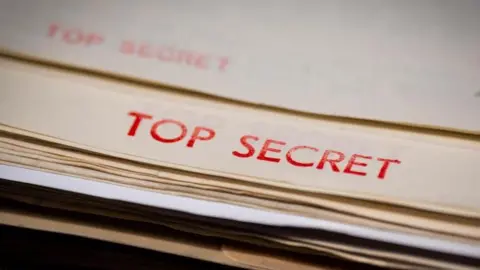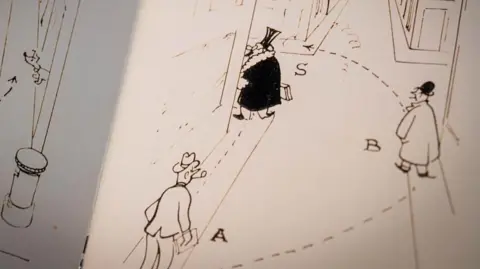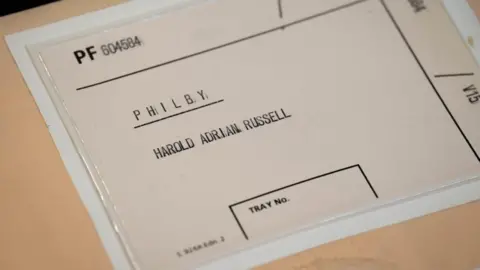MI5 tips for spies and Cambridge Five confessions revealed in new exhibition

 pa media
pa mediaThe confessions of double agents and tips for new spies have been released as part of a series of recently declassified documents from MI5.
The documents are part of a new exhibition going on display at the National Archives this spring and include details about some of Britain’s most notorious spies.
It includes a never-before-seen paper version of the confession of Cambridge spy Kim Philby.
The National Archives said this is the first time in the 115-year history of the intelligence agency that it has become a partner in such an exhibition.
 pa media
pa mediaUnlike other government departments, MI5 is not subject to the Freedom of Information Act. Instead, it chooses which portions of its records are released to the public and those files are sometimes partially redacted.
Sir Ken McCallum, Director General of MI5, said, “While much of our work must remain secret, this exhibition reflects our continued commitment to being open wherever possible.”
There is also newly declassified guidance on recruitment into the security service, along with details about high-profile individuals from the organisation’s early years.
A booklet provided to agents during World War II read, “False mustaches or beards can be easily recognised, especially in the bright lights of a restaurant, pub or Tube train.”
“Watchers” – effectively spies in MI5 – were also instructed not to have high expectations of a “glamorous” program when they were working undercover.
“The screen spies of Secret Service thrillers or spy novels attract the uninitiated, but in actual practice there is little glamor and much monotony in a calling like ‘observation’.”
But physical attributes can immediately disqualify you from being a “successful looker.”
The booklet states that an ideal supervisor should be of “unusual type” and “should not exceed 5 feet 7 inches or 5 feet 8 inches in height.”
 pa media
pa mediaDetails of the case and confessions of some members of the so-called Cambridge Five spy gang have also been provided to the National Archives as part of the exhibition.
Kim Philby, Anthony Blunt and John Cairncross – all whose details are included in the exhibition – were recruited as Soviet spies at Cambridge University in the 1930s.
Philby’s confession to his long-time friend and fellow MI6 officer Nicholas Elliot is shared in the exhibition and details the dramatic confession he made in January 1963 – including that the double agent planned it all then Will do from.
According to a transcript of the pair’s conversation, Philby confessed that he found life in MI6 to be like “controlled schizophrenia”.
The Soviet double agent said, “I really felt a tremendous loyalty to MI6,” but his extreme loyalty was “to the other side.”
Philby told his then-friend that “if he had to live his whole life over again, he would probably behave the same way”.
A few days later, the pair met a third time, where the double agent handed over a six-page typed description of covert work for the Soviet Union and explained how he had been recruited.
Shortly before the end of the war, Philby was promoted to head of MI6’s anti-Soviet section – meaning he was in charge of running operations against the Soviet Union while working as a KGB agent.
He is considered one of the most successful Cold War-era double agents in the history of British intelligence.
The MI5: Official Secrets exhibition will open at the National Archives this spring.






